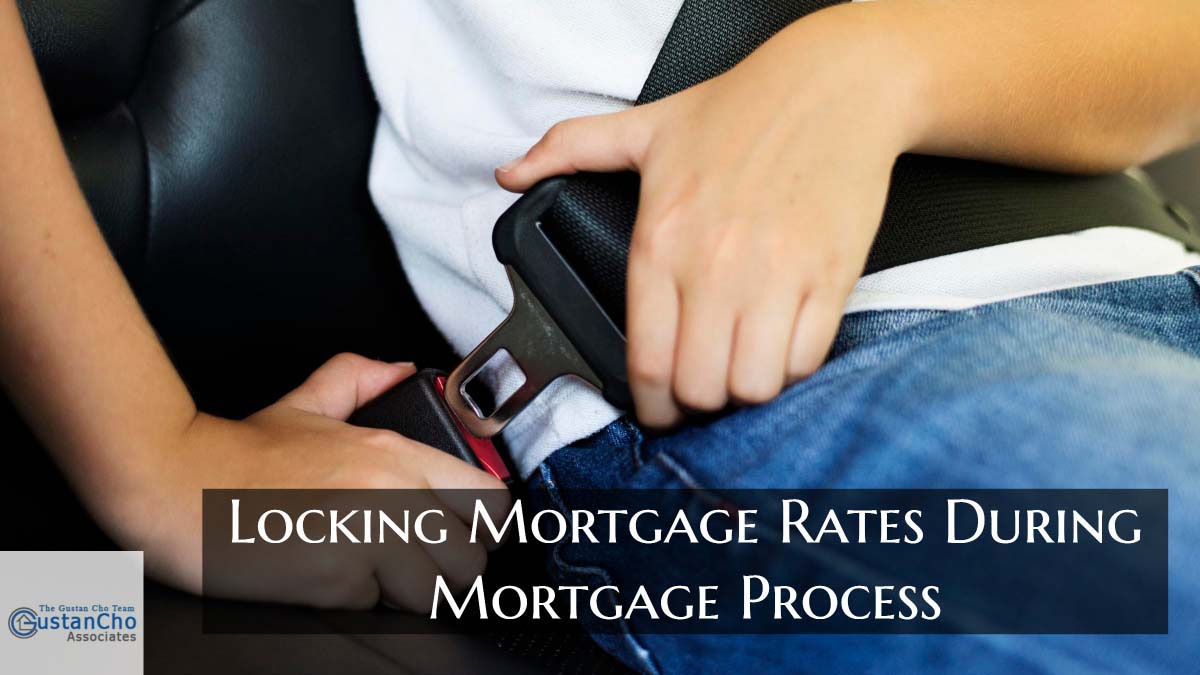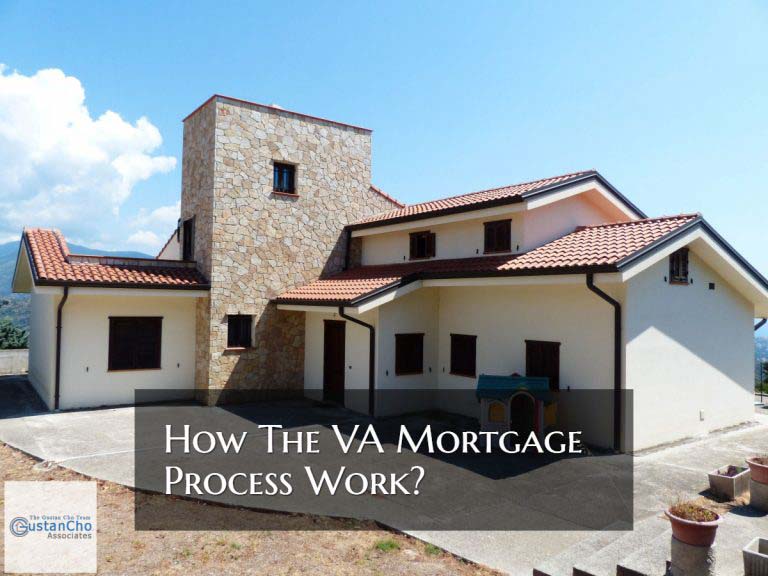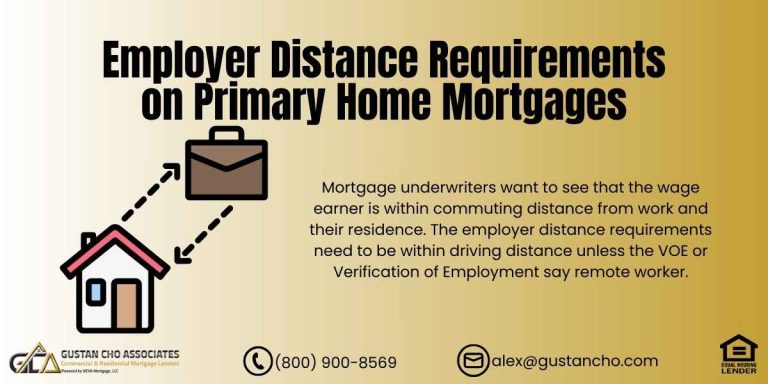This guide covers locking mortgage rates during the mortgage process. Gustan Cho Associates at NEXA Mortgage, LLC offer highly competitive interest rates on their mortgage products. Many clients are confused during the mortgage process. Many are unclear in locking mortgage rates during the mortgage process. Alex Carlucci, a senior mortgage loan originator at Gustan Cho Associates says the following about locking mortgage rates.
Locking mortgage rates is different for each client. Unfortunately, your loan officer does not have a crystal ball. Locking mortgage rates is still a gamble based on market trends.
In this blog, we will detail the process for locking mortgage rates during the mortgage process. We will explain how to take the gambling factor out of the process. The mortgage process can be stressful and confusing, that is why we are here to help guide you through the process. In the following paragraphs, we will cover locking mortgage rates during the mortgage process.
Steps in The Mortgage Process
Once you have a purchase contract for the home you’re buying, your loan officer will send you a full loan disclosure package. This disclosure package will detail all the information associated with your mortgage loan. This disclosure package will clearly tell you if your interest rate is currently “locked” or “floating” on your LOAN ESTIMATE. The loan estimate is the most detailed disclosure meant to educate you on the fees associated with the transaction.
There are times when there is a fee to lock your interest rate. That fee refers to DISCOUNT POINTS. Once the disclosure package is sent, you may lock your interest rate at any time.
It is possible to lock your rate in at the time disclosures are sent. For a refinance transaction, you may also lock your rate in at any time. The industry-standard rate lock is good for 30 calendar days. You can lock in for longer, 45 or 60 days. Depending on your mortgage qualifications, we also have customizable rate locks. These rate locks may be given for a specific amount of days, such as 22 days for example. The longer you lock your interest rate in for, the higher the cost that rate is. A 45-day lock will be more expensive than a 30-day lock. For more information on rate lock-ins, see this article on the CFPB’S WEBSITE.
Lock In Your Mortgage Rate Before It’s Too Late
Rates can rise without warning—protect your budget by locking your rate during the loan process.
Why Locking Mortgage Rates Is Vital for Homebuyers
Here’s The Bottom Line:
- The bond markets drive your mortgage rate.
- When bond prices drop, mortgage rates increase; the opposite is true.
- Because rates keep moving several times daily, delaying a lock can cost you thousands of extra interest payments.
- A lock protects you from those overnight swings.
- It guarantees the same rate from day one through closing, even if the markets fail.
When Is the Best Time Locking Mortgage Rates?
- Timing a rate lock can feel like guesswork.
- A common winning strategy is to lock after you get a pre-approval and find the home you want.
- Spot the home, and lock it as soon as you get a signed purchase contract.
- If you can swing it, a long lock—for 60 or 90 days—gives you flexibility if the closing keeps sliding.
- If you stay under contract, shorter locks of 15 or 30 days can help you pounce on a drop in rates.
What Happens Locking Mortgage Rates and Rates Go Down After You Lock?
- Locks can sometimes be a missed chance if rates drop after you secure a deal.
- Luckily, most lenders give you a “float-down” option for a small fee.
- It can reset your rate to the current lower number, keeping your locked closing date.
- If you don’t have that option, you still have the peace of mind that a lock provided you with the protection you wanted from day one.
How Locking Mortgage Rates Affect Your Loan Approval
Locking your rate isn’t the last step. It’s a game-changer for closing. Lenders will re-scan your loan, confirming your locked rate and checking that your loan still meets underwriting guidelines. A smooth process, like keeping your job and financial documents tidy, will keep the lock in place. If any last-minute changes pop up, immediately address them with your loan officer.
Frequently Asked Questions on Locking Mortgage Rates
Can I Lock a Rate Before I Have a Contract?
- Yes, but most lenders only allow it for a few days and could charge a small fee.
What’s The Cost of Locking Mortgage Rates?
- Locks are usually free for 15-30 days.
- Longer locks can cost a small percentage of the loan amount.
Can I Lock Rates if I’m Self-Employed?
- Ensure you have your last two years of 1099s or tax returns ready.
How Long Can I Keep a Lock?
- Locks can last from a few days to 90 days, depending on the lender and the loan program.
Will a Lock Affect Closing Costs?
- A lock usually doesn’t change your closing costs, but your rate will affect your monthly payments.
- Contact Gustan Cho Associates anytime to discuss your loan’s right rate lock strategy.
- We’re here to help you secure your rate and your dream home.
What Does It Mean Locking Mortgage Rates?
Locking a mortgage rate is when you lock a set interest rate for a certain time. Common choices are 15, 30, 45, or 60 days, while the lender finishes the paperwork and underwriting your loan. Once you lock, the rate is shielded from the daily ups and downs of the market, so your monthly payment stays the same, even if rates jump while your application is being processed.
If you don’t lock, the rate may increase before you close, which could change your mortgage payment or loan approval. A lock lets you know exactly what your rate will be.
When Should You Lock a Mortgage Rate?
The right time to lock depends on your plans and the market’s performance. Many homebuyers lock right after their offer is accepted, especially when rates are trending upward, like in 2025. Others might wait—called “floating”—if they think rates could dip slightly.
Your lender is the best source for advice on whether it’s smart to lock today or hold off. At Gustan Cho Associates, our loan officers keep a close eye on the bond market so we can guide every client on the best time to lock their rate.
How Long Can You Lock a Mortgage Rate For?
You can lock your mortgage rate for several different time frames, including:
- 15 days (shortest option, usually least expensive).
- 30 days (the most standard option).
- 45–60 days (longer term, a bit pricier).
- 90–120 days (extended locks, great for new construction loans).
Choosing a longer lock period can give you the breathing room you need to close without worrying about rising rates, but keep in mind that it might cost you a little more upfront. Some lenders may offer extended locks at no extra charge, especially during special promotions. If your lock lapses before you can close, you might need to pay for a lock extension or re-lock at the market rate.
Don’t Let Rising Rates Cost You More
Lock your interest rate early in the mortgage process and avoid surprises at closing.
Can You Change Your Rate After Locking?
Once your mortgage rate is locked, you’re generally on the hook for that rate until your lock period ends or you switch to a different loan program. However, several lenders have “float-down” options that let you snag a lower rate if the market improves while you are still locked.
Let your loan officer know if you’re interested in this option. They can explain the details and requirements. At Gustan Cho Associates, we partner with more than 280 wholesale lenders, so we often offer you a flexible strategy if rates drop after your lock.
What Happens If Rates Drop After You Lock?
- If mortgage rates fall after you lock in yours, your rate still stands.
- You’re shielded from hikes, but miss out on the drop unless your lender has a float-down choice or you decide to re-lock (usually costing you).
- The lock keeps your monthly payment steady, but you need a flexible lock agreement for a lower rate.
- That’s why choosing the right moment to lock is key.
- Team teaming up with Gustan Cho Association, which tracks rate changes daily, can save you money.
What If Your Mortgage Rate Lock Expires?
If your lock runs out before you sign, you can:
- Extend the Lock: Pay a small fee to keep the same rate for a short extra period.
- Start Fresh: Let it go and apply the new market rate, which might be higher or lower.
- Float-Down Re-Lock: With certain plans, you can lock again for a lower rate if available.
Every lender has its own policy on what happens when a rate lock expires. Some might give a brief grace period, while others will ask to start the underwriting process again. To keep your rate safe, keep lines of communication open with your loan officer and keep the mortgage process moving without delays.
Key Things that Influence Your Mortgage Rate Lock
A few main factors guide the rate you receive and the right moment to lock it in:
Loan type (FHA, VA, Conventional, Non-QM)
- Credit score
- Loan amount and down payment
- Primary residence versus investment property
- Loan term (30-year vs. 15-year)
- Current trends in the bond market and key economic headlines
Timing your lock just right means knowing how these pieces interact. At Gustan Cho Associates, we track live mortgage-backed securities and treasury data to help you secure a lock that aligns with your goals.
Locking Rates in 2025: What to Know Right Now
As we look at 2025, securing mortgage rates has grown even more urgent. Although the Federal Reserve may lower rates, ongoing inflation and global events are still rattling the market. To avoid surprises, more borrowers opt to lock in ahead of time, especially while rates are sitting at levels we haven’t seen in years.
If you’re in the process of buying a home, don’t put off your pre-approval. Start it now, ask your loan officer about which way rates are headed, and settle on the right moment to lock your rate.
Why Borrowers Count on Gustan Cho Associates For Rate Locks
At Gustan Cho Associates, we’re here for the borrowers the other guys said no to. More than 80% of our clients arrive after being turned away.
Here’s how we help:
No Extra Lender Rules on FHA, VA, USDA, and Conventional Loans
- Quick closings and rate locks that go the distance.
- Access to over 280 wholesale lenders in one place.
- Custom guidance on locking rates that match your plans.
- Whether it’s your first home, a refinance, or a new build, we help you grab the best rate on your terms—no red tape.
Frequently Asked Questions (FAQs) About Locking Mortgage Rates
What is a Mortgage Rate Lock?
- A mortgage rate lock keeps your interest rate steady for a certain period while your loan is being processed, so you’re safe from sudden jumps in the market.
When Should I Lock My Mortgage Rate?
- Most buyers lock in a rate once the purchase contract is signed. Some prefer to float the rate, hoping it will go down.
- Talk to your lender to see what is best for you.
Can I Change My Loan Type After Locking The Rate?
- You can change the loan type, but doing so usually means you will need a new rate lock and your loan will go through underwriting again.
What if My Lock Expires Before Closing?
- You can often extend the lock for a charge, re-lock the rate at the current market price, or use a float-down if the lender has that choice.
Can I Unlock My Rate if Rates Drop?
- You can unlock the rate only if your lender has a float-down program.
- Otherwise, you must stick with the locked rate or pay to lock again.
How Long Should I Lock My Rate?
- Pick a lock period that covers your closing date with a cushion.
- It’s usually safe to pick between 30 and 45 days.
Do I Have to Pay for a Mortgage Rate Lock?
- Regular locks usually cost nothing.
- However, depending on the lender, locks lasting longer than 60 days might incur a fee.
Lock Your Rate and Lock in Savings
Avoid payment shock later—secure your interest rate now while it’s still low.
Factors Changing Mortgage Rate
Due to the lack of mortgage guidelines prior to the calendar year of 2010, many misconceptions of the mortgage process were born. Prior to 2010, the mortgage process was the Wild Wild West. Many loan officers were paid higher commissions for charging higher interest rates.
Lenders get their compensation on what is called a yield spread premium. However, the federal government stepped in after the catastrophic real estate crash of 2008.
Regulators put in The Dodd-Frank Wall Street Reform and Consumer Protection Act called Dodd-Frank for short. Part of this act regulates and protects the American people from being charged higher interest rates and paying loan officers more commission. Loan officers are now paid the same for every type of loan, interest rate, and terms you agree to.
Loan Officer Commission Versus Mortgage Rates
The standardization in commissions is meant to level the playing field. A loan officer is paid the same for all mortgage types. Meaning they are paid the same whether you use an FHA or conventional loan. They are paid the same regardless of the interest rate you receive. Your rate will change based on your qualifications but will not change the loan officer’s compensation. For more on Dodd-Frank, please see the US SECURITIES AND EXCHANGE COMMISSION website.
Factors Affecting Locking Mortgage Rates
The main factors that drive your interest rate are credit scores, down payment amount, and timeframe of the lock. For credit scores, it is pretty obvious. The higher your credit score gives you a lower interest rate. Rates move up and down based on credit scores. Every 20 points is a break in mortgage rate pricing. 640 through 659 will have a higher interest rate than 660 through 679. This trend will continue every 20 points. 680 through 699 will be slightly higher than 700 through 719 and so on.
Down Payment Pricing Adjustments on Locking Mortgage Rates
Just as credit score affects the interest rate every 20 points, down payment does affect the interest rate every 5%. Every increase in a down payment of 5% of the purchase price will lower the interest rate. For example, putting down 10% will have a higher interest rate than putting down 15% and putting down.
20% will have a lower rate compared to purring down 15%. Of course, we all know the 20% down payment threshold for not having mortgage insurance on a conventional mortgage.
However, many Americans do not have 20% to put down. Paying a slightly higher interest rate to obtain a home is worth it to thousands of Americans.
Loan Level Pricing Adjustments on Mortgage Rates
Loan level pricing adjustments also referred to as LLPA’s are risk-based additions to your interest rate for conventional mortgages. These pricing adjustments are standard across the board at our spelled out by Freddie Mac and Fannie Mae. Every lender will have the same loan level pricing adjustments. These hits on your rate are put on directly by the agency.
Examples of LLPAs
What are examples of loan level pricing adjustments?
- Down payment
- Credit score
- Type of occupancy (owner-occupied, second home, investment property)
- Type of home (single-family, condominium, PUD, manufactured home)
- Number of units (single-family home or multi-unit property)
Please see FANNIE MAE’S WEBSITE for more on Loan Level Pricing Adjustments.
Best Time in Locking Mortgage Rates During The Mortgage Process
As stated earlier in this article, unfortunately, we do not have a crystal ball to oversee the market. We can make a highly educated decision on the best time to lock your interest rate. There is no guarantee the rate will not go lower. We will monitor the market and study trends to achieve the lowest rate possible.
Comfort Level by Borrower When Locking Mortgage Rates
The best time to lock your interest rate is at a time when you are comfortable with the rate itself and the cost associated (if any) with that rate. Rates do not always go down, many times they do go up. John Strange, a senior mortgage loan originator at Gustan Cho Associates says the following about locking mortgage rates.
Interest rates have the ability to jump up quickly based on the global market. The mortgage market in 2025 has been all over the place. Our economy is growing strong and rates have plenty to do with the market success.
Lower interest rates increase spending and boost the economy. Mortgage rates are no different. For most Americans, their home is the largest investment they will make, so having a low-interest rate is important.
Locking Mortgage Rates During The Mortgage Process On Construction Loans
Locking your interest rate on a construction loan can be a mind-boggling process. Depending on the construction loan program you select, the rate lock process will vary. We offer a one-time close construction loan where you lock the rate with the same process as a standard mortgage. Dale Elenteny, a senior mortgage loan originator says the following about locking mortgage rates:
Once locked in, the rate does not change. Other construction programs have an interim loan during the construction phase and a permanent loan at the end of the construction phase.
Typically, you have an adjustable-rate (ARM) during the construction phase and you are able to lock in a fixed interest rate upon the home being completed. This program puts you at the mercy of the market during the construction phase. Please reach out to us for more details around construction loans.
Qualifying For a Mortgage With a Lender With No Overlays
We encourage you to reach out directly to Gustan Cho Associates for more information regarding the rate lock process. Please call Alex Carlucci on (800) 900-8569 or text us for faster response. Or send an email to Alex at alex@gustancho.com.
Either Alex or one of the highly-skilled loan officers at Gustan Cho Associates will assist you through your mortgage questions. We are growing in more states across the nation.
We are a one-stop-shop mortgage company without any LENDER OVERLAYS. We work seven days a week to offer top-notch customer service. It is important to remember that the lowest interest rate may not always be the best option for you in the long run. Please call us today to discuss you are mortgage qualifications.
Get Peace of Mind With a Locked Mortgage Rate
Stop worrying about rate hikes—lock in your interest rate during the mortgage process.









